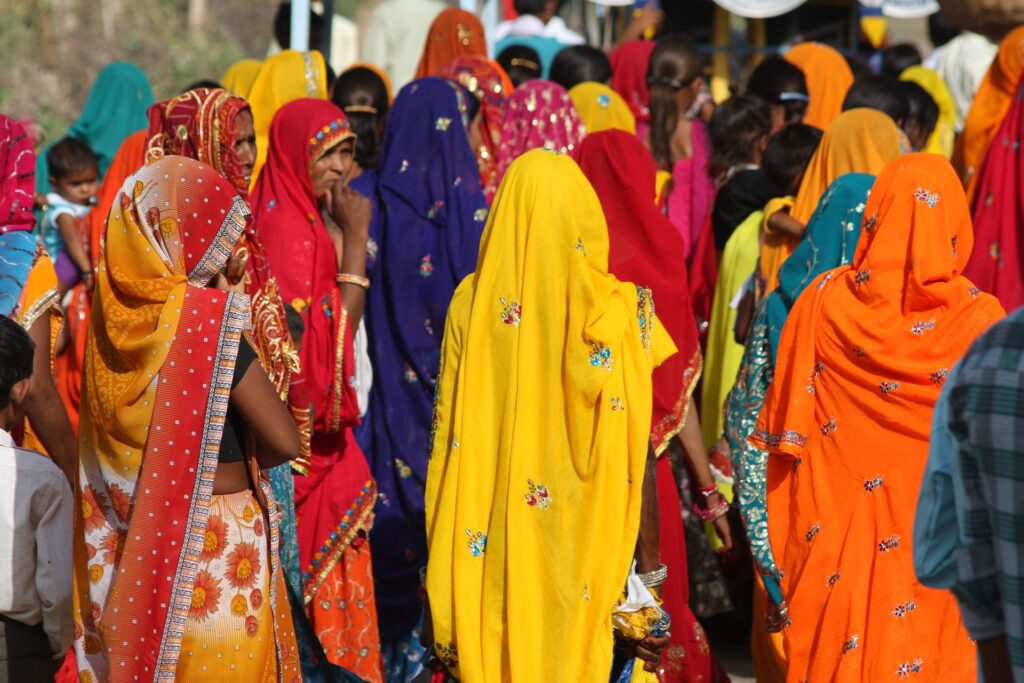LUCKNOW — In December 2020, Muskan and her husband Rashid went to register their marriage in the small town of Moradabad in Uttar Pradesh, India. While Rashid was thrown in jail by the state, Muskan was sent to a women’s shelter despite being three months pregnant. She ended up miscarrying before the courts eventually freed the couple.
Muskan and Rashid’s story is only one that represents the numerous and widespread challenges interfaith couples are facing in India. These couples have faced targeted persecution by Indian authorities under the new anti-conversion laws instituted across the country. The new laws are being publicized to halt “Love Jihad,” a term coined by Hindu nationalist factions to imply that Muslim men trick Hindu women into marriage for the sole purpose of converting them to Islam.
In India, marriage is a social process and practice, the boundaries of which are often defined by customs, traditions and even prejudices. Marriages within the Hindu community itself are primarily performed within caste groups, with only 11% of marriages per year being inter-caste marriages. The stigma is further heightened for interfaith marriages, making them even more of a rarity in the Indian social fabric, with only 2.1% of women who marry outside their faith.
State legislatures have historically passed laws to regulate religious conversions, and currently, nine states have provisions regulating religious conversions to varying degrees. Even though lawmakers from the ruling Hindu-nationalist Bharatiya Janata Party (BJP) claim that the laws are not meant to target any specific religious communities, the majority of the cases registered under the law in states like Uttar Pradesh have been against Muslim men.
The Love Jihad conspiracy and the resulting anti-conversion laws seem to be just another additive to the ruling party’s ongoing conquest to further marginalize India’s 200 million Muslims through various legal measures. The passage of the Citizenship Amendment Act of 2019, which provides citizenship to only non-Muslim refugees from neighboring countries, along with the government’s strict criminalization of the Muslim “Triple Talaq” divorces, has left little to the imagination when it comes to the ideological standing of the ruling party.
“This law will prevent innocent girls being forcefully converted on the pretext of marriage,” said Narottam Mishra, the home minister in BJP-ruled central state of Madhya Pradesh. Prime Minister Modi, meanwhile, has mostly remained silent on the issue and the Central Government has said it has no plans on drawing up federal legislation on the matter, and will leave it up to the states.
The Love Jihad conspiracy is not the creation of the current Prime Minister Narendra Modi nor his party, the BJP. Rather, it is the culmination of the continuous stereotyping of Muslim men as “predatory” since India’s colonial days. In 1924, a Muslim bureaucrat from Cawnpore (now Kanpur) was accused of “abducting and seducing” a Hindu woman and forcibly converting her to Islam. The idea later gained political relevance in the late 2000s when it was taken up by fringe Hindu-right groups in southern India, eventually leading to quasi-legitimizing orders by state courts that ordered probes and annulled interfaith marriages. Later, it was used by the BJP to stir up communal tensions and cause riots in other parts of the country for electoral gains.
The Love Jihad conspiracy has proven to be wildly successful talking for the BJP, triggering all the right politically-conducive anxieties — a majoritarian pseudo-victimhood in the secular republic, patriarchal insecurities in an increasingly modernizing India and blatant Islamophobia that unites Hindu nationalist sympathizers like no other factor.
On January 6, 2021, The Supreme Court of India refused to stay the enactment of the latest anti-conversion laws in states across the country, thus indirectly giving green lights to laws resembling the one that was used to arrest Rashid and Muskan. Uttar Pradesh, India’s most populous state, implemented a law called “the Prohibition of Unlawful Religious Conversion” causing much uproar as it established a set jail term of ten years for a marriage conducted for the sole purpose of religious conversion.
However, the onus of determining the “validity of a union” has been placed on the same authorities and police who already harass and intimidate interfaith couples who seek to marry. India does not have a uniform civil code due to the diverse array of historical customs and traditions of different communities. As a result, couples must register their marriages through laws that govern personal relationships and disputes of their specific communities.
Interfaith couples, meanwhile, have used the Special Marriages Act of 1954 that requires verification from local authorities, a waiting period of thirty days, and mandates the publication of their intent to wed in a newspaper in case objections might arise. The law also vests the authorities with the power to investigate any complaint against the couple, which puts interfaith couples in a precarious position as most of them seek to get married without parental consent or knowledge.
As much as the Love Jihad conspiracy is about the broader project of Hindu nationalism and the implicit strokes of Islamophobia it contains, it is also about policing women’s sexuality and choices. Marriages of choice are extremely rare in India (only 4%) as the concept of arranged marriage, parents’ choosing brides and grooms for their children, reigns supreme. The practice of picking spouses might come off as just conserving familial customs of elderly respect, but it is equally about preserving puritanical standards of caste, class and religion. Now, the Indian state is willing to police love that does not measure up to those puritanical parameters.







